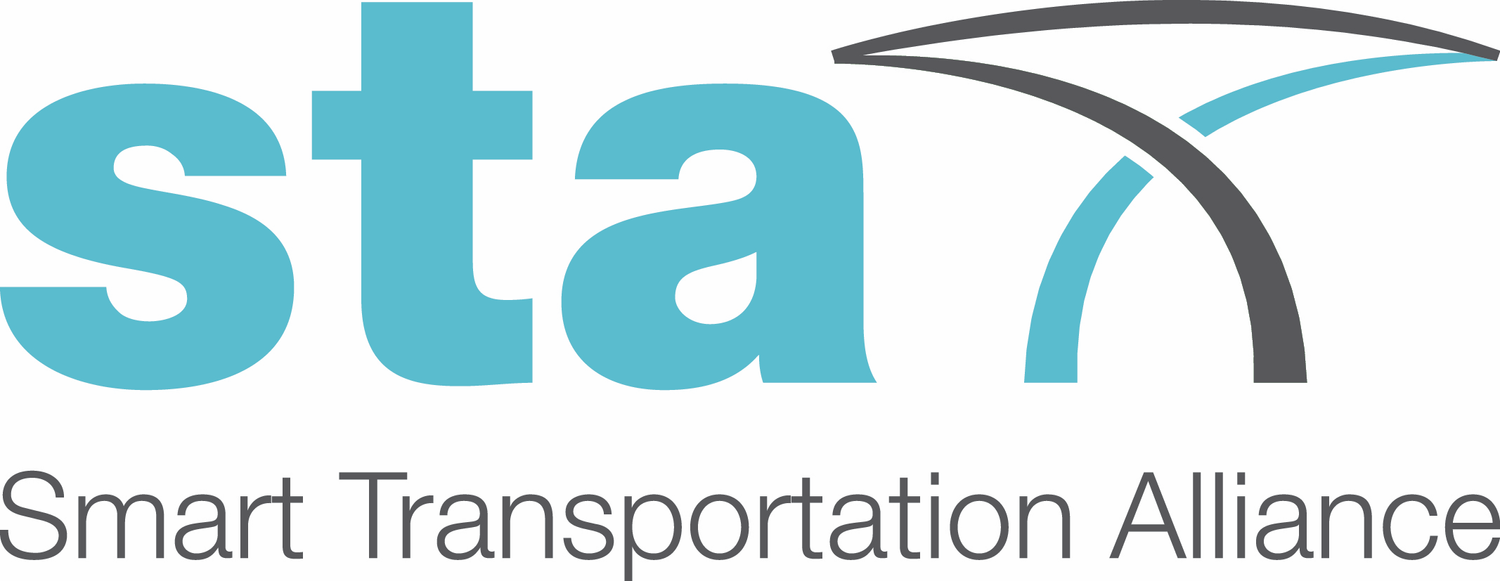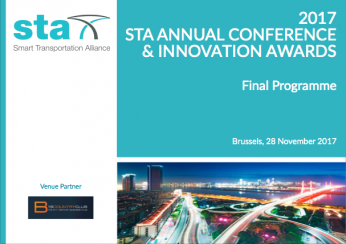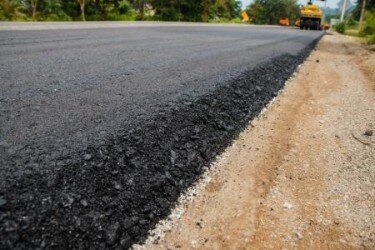STA Newsletter
Issue # October 2017
A bi-monthly online journal providing news and background about activities undertaken by STA with a view to improving the methods, technologies and standards associated to transportation infrastructures.
The 2017 STA Annual Conference and Innovation Awards
Join us at the B19 Country Club in Brussels, Belgium on 28 November 2017 for the STA Annual Conference and Awards Ceremony. Be a part of this landmark event reviewing the Smart Transportation Infrastructures of the Future.
Featured Speakers:
Ms Maria Cristina Marolda, Policy Officer, DG Mobility and Transport, European Commission
Prof José Manuel Menéndez, Director of the Research Group on Visual Telecommunications Applications G@TV, Technical University of Madrid
Prof José Manuel Vassallo, Professor, Head of Department, Technical University of Madrid
Prof Thierry Vanelslander, Department of Transport and Regional Economics, University of Antwerp
Mr Patrick Le Pense, Manager, ArcelorMittal Europe - Flat Products
Ms Claudia Cofano, CRM Group - ArcelorMittal R&D
Mr César Bartolomé, Director for Innovation, Spanish Institute for Cement and its Applications
Ms Maira Cortese, Crash & Dynamic Division, GDTech
Prof Nikolay Dmitrichenko, Rector, National Transport University of Kiev (NTU)
The Final Programme of the Conference is available for download here.
To register for this conference we kindly invite you to send an e-mail to info@smart-transportation.org with your name, position and organisation details. Seats will be allocated on a first-come, first-served basis. In order to secure your place, please register before Friday, 24 November 2017 (18:00 CET).
We look forward to seeing you at 2017 STA Annual Conference!
The 2017 STA Best Innovation Project/Solution
SMEV: Digital Optimisation of Traffic Conditions for Emergency Vehicles - Award collected by Mr Wolf P. Zeplin, CEO, SMEV International
SMEV (www.smev.international) is a ground-breaking ITS cooperative system that changes the way of addressing emergency responses in the Smart City.
Resorting to geo-location services and not to signalling devices installed in traffic lights, SMEV provides an open path to emergency services i) by clearing junctions from disturbing traffic, and ii) reorganising in real time the traffic dynamics in the urban area surrounding the route to the incident.
Following an operational pilot deployment of the SMEV precursor system in two German towns (57 traffic lights in total), today the SMEV solution i) can be easily deployed in any Traffic Control Centre, and in addition ii) allows the seamless mobility of emergency vehicles ambulances, fire brigades and police- by bringing the following benefits:
35% reduction in travel times to critical locations,
75% reduction in accident costs,
15% less CO2 emissions, and
30% reduction in costs for insurance companies.
The 2017 STA Person of the Year (ex-aequo)
Mr Andreas Rimkus, Member of the German Federal Parliament
Mr Andreas Rimkus, is Member of the Parliament (DB) of the Federal Republic of Germany (MP) and Deputy Chairman of the Committee of Traffic Affairs of the Parliament (DB) of the Federal Republic of Germany (MP).
Mr. Rimkus has focused his political activity on traffic affairs concentrating mainly on project of the improvement of smart mobility in cities and the deployment of future-oriented and sustainable mobility projects such as:
Improvement of public transport in general,
Implementation of hydrogen-combustion innovation project (taxi and public transport buses) for the cities of Düsseldorf, Berlin, Hamburg and Frankfurt,
Improvement and installation of charging stations for e-cars,
Implementation of mobility centres serving as interface for combined transport systems,
Implementation of test routes in cities for autonomous cars,
Improvement of emergency missions.
In his responsibility as MP he has been actively working to raise funds from the Government of the Federal Republic of Germany for projects such as:
Test routes for autonomous cars in Düsseldorf with EUR 9 Mio,
Modernisation of public transport buses with hydrogen combustion cells,
Implementation of bicycle routes in city centres.
Mr. Rimkus has been awarded the 2017 Person of the Year for his active engagement in the deployment of Smart Transportation Infrastructures since his election into the Deutsche Bundestag.
Prof Vittorio Giavotto, Professor Emeritus, Polytechnic University of Milan
Prof Giavotto, has been teaching Safety Engineering, Aerospace Engineering and Aeronautical Engineering for more than 40 years. He has established one of the most advanced research centres in the Italian public university system (LAST at Politecnico di Milano).
LAST is a unique Transport Safety Lab linked to the Department of Aerospace Science and Technology (passive safety section) and Department of Mechanical Engineering (active safety section). LAST is set up to carry out energy absorption tests on small- and medium-size aeronautic and car structures, typically components or assemblies, as well as fixed acceleration tests.
Prof Giavotto has been awarded the 2017 Person of the Year for his eminent career, and more specifically for his devotion to designing passive safety systems and to ameliorating passive safety standards, as well as for his contribution as Chairman of CEN TC 226/ WG1/TG1 since many years, resulting in the adoption of the European Standard for road restraint systems EN1317.
‘African Chapter', STA’s training for the African continent
18 October 2017
The ‘African Chapter’ is STA’s programme covering the African continent; it is devoted to promoting knowledge exchange and best practice on methodologies, techniques and norms related to transport infrastructures.
“Transport infrastructure changes a community. We need a cultural gear change in the way that we look at urban infrastructure.”
NEWS OF INTEREST
H2020 Masterclass, 4th edition (Brussels, 11 – 12 December 2017)
The H2020 Masterclass: How to develop successful H2020 proposals in the Mobility, Energy & ICT sectors, organised by ISOM Business School in cooperation with New Frontier Services and S3Innovation, is a 2-day intensive course designed to respond to the professional development needs of stakeholders from both the profit and non-for-profit sectors looking to build successful H2020 projects.
Passing Traffic Generates Power in Innovative Roads
Researchers from Lancaster University in the United Kingdom are working on the development of materials that would enable passing traffic to generate electricity as it uses the road. One of these so-called smart materials is called ‘piezoelectric’ ceramics. These are embedded into the road and can harvest energy via the vibrations of the passing vehicle.
Engineers could learn a lot from dance when designing urban transport
There is little more important for the sustainability of cities than the ways we move around them. With transportation estimated to account for 30% of energy consumption across the majority of the world's most developed nations, reducing the necessity for energy-reliant vehicles is fundamental to addressing the environmental impact of mobility.
But as cities become the predominant habitat for most people in the world, it is important to think about other kinds of sustainability too. The ways we travel impact our physical and mental health, our social lives, our access to work and culture, and the air we breathe.
ROADS: Research suggests asphalt roads cannot handle 21st century climate
A study published recently in the journal Nature Climate Change suggests that the materials being used to build asphalt roads is not up to the test when it comes to withstanding the extremes in climate change that have presently being experienced and are expected to be experienced as the century progresses.
The authors estimate that the mismatch between roads and temperatures in 2010 alone has already added up to between $13 and $14 billion in unnecessary expenses
Global transport sector urgently needs to improve its sustainability
With COP23 just around the corner, the pressing demand for decarbonisation in the transport sector is as tangible as ever. Though there have been many efforts internationally to increase the sustainability of the sector, perhaps much more needs to be done.
The first ever Global Mobility Report, produced by the Sustainable Mobility for All (SuM4All) initiative, an international consortium of over 50 leading organisations in the transport sector, reveals some disappointing news for the sector. According to the report, the global transport sector is not on track towards achieving its sustainable mobility goals.










